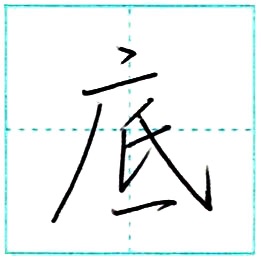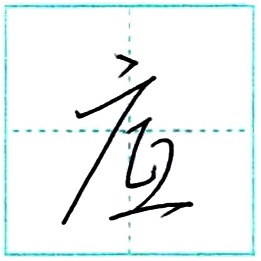前回と今回の記事で、行書の「底」を2種類紹介しています。今回はそのPart.2です。
ぜんかいとこんかいのきじで、ぎょうしょの「底(てい)」をにしゅるいしょうかいしています。こんかいはそのパートツーです。
In the previous and this article, I’m introducing 2 types of 底(tei) in semi-cursive script. This time is the Part.2.
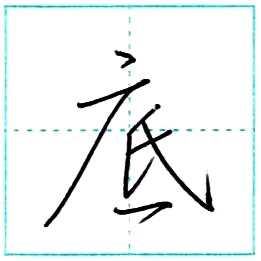
スポンサーリンク
単語例(たんごれい)
Word examples
湖底 [こてい ko tei] = lake bed
海の底 [うみのそこ umi no soko] / 海底 [かいてい kai tei] = seabed
海底二万里 [かいてい にまんり kai tei ni man ri] = French novel “Twenty Thousand Leagues Under the Seas” written by Jules Verne
※ジュール・ヴェルヌ [ju ー ru・be ru nu] = Jules Verne
到底無理 [とうてい むり tou tei mu ri]
= 到底不可能 [とうてい ふかのう tou tei fu ka nou]
= absolutely impossible
根底にある [こんていに ある kon tei ni a ru] = underlying
心の底から [こころの そこから kokoro no soko ka ra] = from the bottom of one’s heart
スポンサーリンク
書き順(かきじゅん)
Stroke order
1.
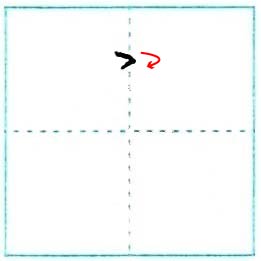
2.
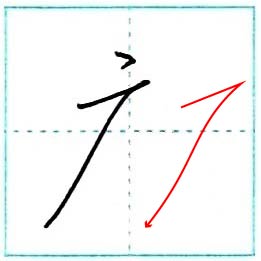
3. 次の線は、1画で書きます。
つぎのせんは、いっかくでかきます。
Write the next line with one stroke.
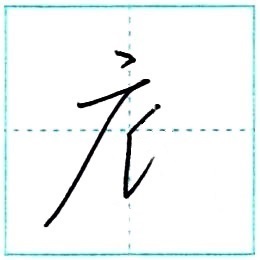
3-1.
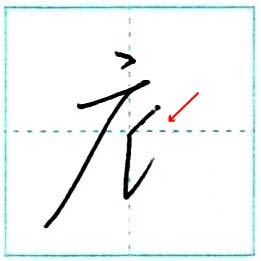
3-2.
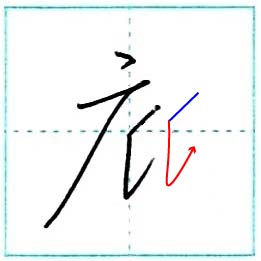
4.
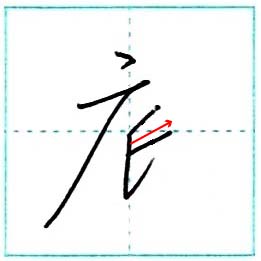
5.
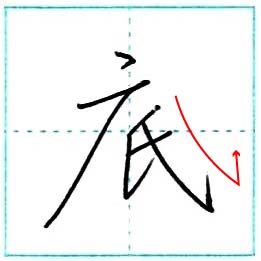
6.
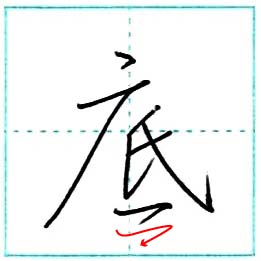
7. 完成(かんせい) Finish

公開日/post 2023.05.05
更新日/update 2023.05.05
スポンサーリンク

